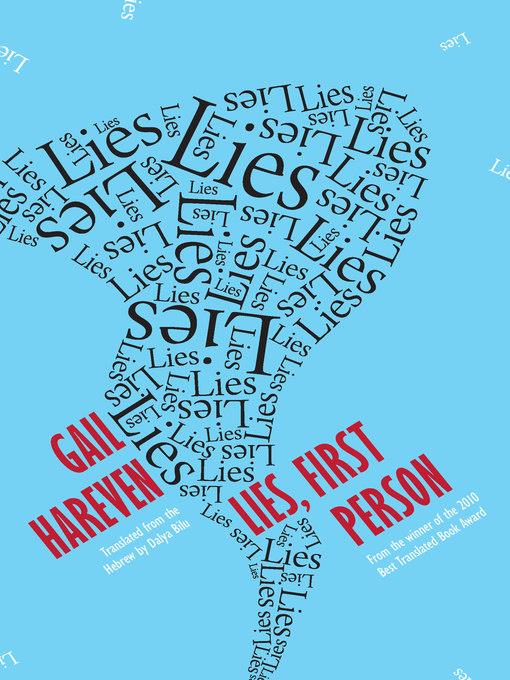
Lies, First Person
- اطلاعات
- نقد و بررسی
- دیدگاه کاربران
نقد و بررسی

December 1, 2014
Hareven’s book starts with a disclaimer: “You should never believe writers, even when they pretend to be telling the truth. Everything... here is pure fiction.” Not exactly big news in a novel, but when narrator Elinor says her lawyer husband insisted on this introduction, the reader’s antenna goes up. Could the story be true? This is just one of the tricks Hareven (The Confessions of Noa Weber) gets up to. There’s also the title: does it refer to lies told in the first person—that is, by the narrator—or those told by her father’s cousin, the author of a novel within the novel told in Hitler’s voice, titled, yes, Hitler, First Person. Aaron Gotthilf, Elinor’s Uncle,
has been punished for the book (bad reviews, banning, hate mail), but he’s gone unpunished for repeatedly raping Elinor’s older, more timid sister, Elisheva. The rapes more or less destroyed the Jerusalem-based Gotthilf family, precipitating breakdowns, suicide, and abandonment; that Elinor is a happily married columnist and her sister has made a new life in America seems almost miraculous. But Elinor’s Eden is threatened when Aaron comes to Jerusalem to apologize (for the book, not the rape). Well translated, the novel is tart and testy, filled with insight into writers’ ability to lie, omit, and fabricate.

Starred review from December 1, 2014
An Israeli woman plots revenge against the relative who raped her sister-and wrote an imagined autobiography of Adolf Hitler besides-in a coruscating novel about faith and family.Elinor, the middle-aged narrator of the second novel by Hareven to be translated into English (The Confessions of Noa Weber, 2009), lives a comfortable life in Jerusalem with her husband, Oded, and writes a newspaper column about the quirky adventures of an imagined immigrant to the city. Her just-so existence is undone, though, when she learns that her uncle, Aaron, is visiting Israel from the United States. Aaron is making an apology tour for a novel he wrote decades before, Hitler, First Person, and his re-emergence stokes Elinor's memories of how he repeatedly sexually assaulted her sister, Elisheva, when he was writing the novel in the family home. In the months before Aaron's arrival, Elinor and Oded head to the U.S. to visit their sons but also take a detour to central Illinois, where Elisheva has started a family, converted to Christianity and-to Elinor's disgust-not only corresponded with Aaron, but forgiven him. ("She doesn't want a trial," Elinor moans to Oded. "She wants him to ascend to heaven with her.") How much does Elinor owe her sister if she's moved on? How much did Aaron's imagination of Hitler's evil spill over into his own monstrousness? And how much does Elinor's urge "to see Aaron burn" only perpetuate the problem? Hareven's novel is a brilliant and careful study of those questions, capturing Elinor's ever accelerating rage while maintaining a prose style that's poised and philosophical. The Garden of Eden is a persistent trope in the novel, as Elinor keeps imagining her home as a refuge; but when Oded becomes conscripted into her obsession, it's clear we remain in a stubbornly post-lapsarian world. A rich and harrowing novel with plenty to say about religion and authorship.
COPYRIGHT(2014) Kirkus Reviews, ALL RIGHTS RESERVED.

June 1, 2015
A reasonably successful newspaper columnist and happy wife and mother, Elinor lives in the Garden of Eden--Jerusalem, that is--until a phone call from her uncle in America brings it all crashing down. As Elinor reacts viscerally ("Stop calling him a person," she snaps at her husband), we quickly learn that the uncle not only wrote a controversial book called Hitler, First Person but assaulted Elinor's sister. Now he's visiting, seeking public pardon for the book, and in a swift, engaging run-up to a violent climax, Elinor tells her side of the story. Is she bending the truth? VERDICT This follow-up to The Confessions of Noa Weber (winner of the Best Translated Book Award) is a well-crafted psychological study and thriller-like read.
Copyright 2015 Library Journal, LLC Used with permission.




دیدگاه کاربران